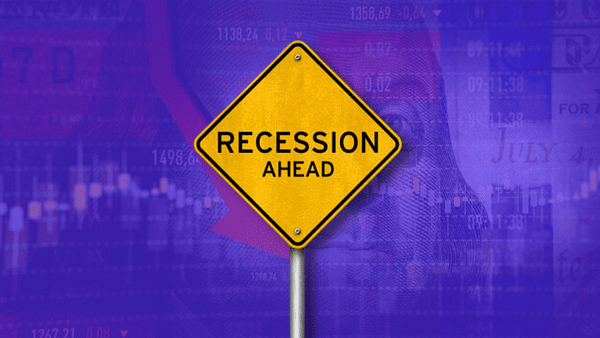Investors on Wall Street fear a recession that will bring stock markets to their knees. Why?
Even though the markets on the charts look as if nothing is happening, not everything is exactly rosy after all. Many investors are worried about the potential recession we could fall into. Why are they so worried?

US stock markets maintained their upward trend in the first quarter of the year despite the turmoil in the banking sector. Although the performance has been impressive, some investors are expressing concern that stocks may be vulnerable to an economic downturn caused by the recent collapse of Silicon Valley Bank. In the following article, we look at important factors and context that suggest investors should brace for a potentially steeper path to the downside.
One of the most discussed topics is stock valuations. By historical standards, stocks are now elevated, which could cause earnings to fall further in the event of a recession. The turbulence in the banking sector is also raising concerns about a possible recession and its impact on equity markets. According to Hans Olsen, chief investment officer at Fiduciary Trust Co, stocks are definitely not priced for a recession scenario.
The answer is emphatically no, the market is not priced for a recession at all. For equities, this means we could be in for some very nasty surprises in the coming quarters.
Earnings estimates for the coming quarters are not promising and may fall even further in the event of a recession. Historically high stock valuations suggest that investors should brace for even bigger declines in a recession. Related to this is the central bank's outlook, which suggests that borrowing costs will remain at current levels until the end of the year. However, investors in the futures markets expect rates to fall in the second half of the year.
Once the market becomes visible about the timing of these rate cuts, recession notwithstanding, I don't think you'll see much downward movement in stocks.
One factor that will determine the markets' reaction to the economic downturn is the strength of the labor market. In the past, stock markets have been able to recover more quickly when the labor market has been strong. However, the current situation is less certain as the labor market is still in the process of recovering from the pandemic and other global events that have affected the economy.
As for equity markets, investors should be mindful of potential hurdles and adjust their investment strategies to minimize the impact of a potential recession on their portfolios. This includes diversifying their investments, monitoring developments in the labour market and keeping a close eye on central bank negotiations and other economic indicators.
Diversifying investments is essential to protect portfolios from market fluctuations. Investors should diversify their investments across sectors, geographies and asset classes to reduce the risk of losing value in their portfolios during a recession. This may include investments in equities, bonds, real estate and alternative investments such as commodities or cryptocurrencies.
In conclusion, U.S. equity markets maintained solid gains in the first quarter despite turbulence in the banking sector. Although performance was impressive, investors should be cautious and prepare for a potentially steeper path down. It is important to monitor economic indicators, broaden and diversify investments and closely monitor central bank decisions. In this way, investors can minimize the impact of a recession on their portfolios and remain successful in uncertain times.
WARNING: I am not a financial advisor, and this material does not serve as a financial or investment recommendation. The content of this material is purely informational.